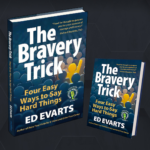
by Ed Evarts | Sep 17, 2015 | Accessibility, Visibility and Value
Being accessible benefits everyone. Ram Reddy is the Chief Information Officer at The Rockport Group, offering high-quality dress and casual footwear to customers globally. Despite the daily challenges he faces in his busy workplace, Ram is committed to being...

by Ed Evarts | Sep 9, 2015 | Introduction, Visibility and Value
Introducers introduce themselves with energy, clarity, and confidence. Why reinvent the wheel? Let’s take a cue from our Introducer colleagues and practice some of the behaviors they weave into their introductions that make Introducers so effective when connecting...

by Ed Evarts | Sep 2, 2015 | Introduction, Visibility and Value
Have you ever noticed that there are some colleagues who seem to remember names better than others? Do you covet their secret? Have they bought a DVD on the Home Shopping Network to build their memory skills? Do they picture a boat when they meet Bob and a house when...









